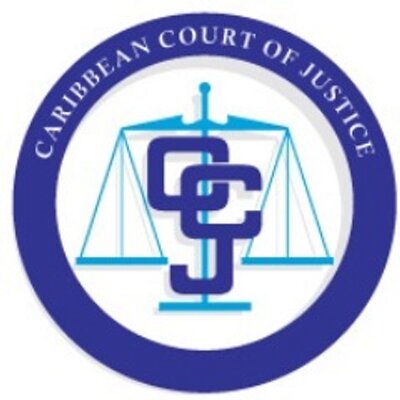The Caribbean Court of Justice (CCJ) recently heard arguments in a decades-old action which has its genesis in the 1998 termination of the services of James Ramsahoye by the now-defunct Linden Mining Enterprise (LINMINE) and Bauxite Indus-try Development Company Limited (BIDCO).
Ramsahoye has over the last 23 years been engaged in a number of court battles—all related in one way or the other—to his initial action.
The current challenge before the CCJ is an appeal filed by Ramsahoye (the Appellant), contesting the decision and procedure adopted by the Guyana Revenue Authority (GRA) to assess and deduct income tax from damages he had been awarded by his former employers who had been found to have breached his contract of service.
The Trinidad-based court of last resort for Guyana, is being asked to determine issues concerning what constitutes taxable income under the Income Tax Act and the process and procedural safeguards that GRA (the Respondent) must adhere to, in ensuring a fair and transparent process which accords with the principles of natural justice.
It is the contention of Ramsahoye’s attorney—Chandrapratesh Vikash Satram—that the Revenue Authority’s move to apply taxes now, to sums awarded to his client since 2004, is a breach of the Act.
Satram in his address to the Court said that the GRA is attempting to tax pension amounts which are still to be paid to his client.
He said that while his client was being paid following the award in 2004, payments ceased in 2018 after the CCJ in another action stemming from the said set of proceedings, refused a special-leave application Ramsahoye was seeking to appeal.
At the time, he was hoping to be granted leave to appeal a decision of the Guyana Court of Appeal, which dismissed enforcement orders from a previous judgment, that he be paid damages and a monthly pension, against LINMINE and BIDCO.
BIDCO’s assets have been transferred to the National Industrial Commercial Investments Limited, (NICIL).
Satram’s argument is that the Act has a time-bar, so that assessments cannot be done and taxed seven years after.
He argues against this background that even if it was taxable back in 2004 when an assessment would have been done at that time, the GRA cannot now—17 years after—attempt to do any assessment on sums still to be made, in hopes of applying taxes.
He submitted to the court during the two-hour hearing, that the limitation period under Section 72 of the Act is clear and to do otherwise would be unjust.
Meanwhile, counsel for GRA—Maritha Halley—made a bid at protecting the Authority’s interest but would eventually yield to her opponent’s position, conceding that Section 72 of the Act is clear and that there was no way around it in the instant case.
She accepted that while the Act does include a proviso, it does not apply in the Appellant’s appeal. The exception applies in instances where fraud or any gross or willful neglect would have been established.
In the absence of those two situations, however, a visibly deflated Halley said, “unfortunately I will have to concede that Section 72 is clear and will bind the hands of the Commissioner.”
It had been Halley’s position that “in the interest of justice,” the Court should allow the Revenue Authority to now raise an assessment to tax sums still to be paid to the Appellant.
Satram, however, remained resolute that in light of Section 72, the Court should make a consequential order that the Commissioner ought not to now raise any new assessment.
Section 72 states, “Where it appears to the Commissioner-General that any person liable to tax has not been assessed or has been assessed at a less amount than that which ought to have been charged, the Commissioner-General may, within the year of assessment (commencing with the year of assessment 1942) or within seven years after the expiration thereof, assess the person at such amount or additional amount as according to his judgment ought to have been charged, and the provisions of this Act as to notice of assessment, appeal, and other proceedings hereunder shall apply to that assessment or additional assessment and to the tax charges under it.”
The exception then states, “Provided that where any fraud or any gross or willful neglect has been committed by or on behalf of any person in connection with or in relation to tax for any year of assessment, an assessment in relation to such year of assessment may be made at any time.”
The Court has indicated that it will consider the arguments and inform when it will render its decision.
The appeal was heard by President of the CCJ Justice Adrian Saunders; along with Justices Denys Barrow, Jacob Wit, Winston Anderson and Andrew Burgess.
Ramsahoye was employed by the two state-owned corporations LINMINE and BIDCO—in the nationalized bauxite industry, when in 1998, after 26 years of service his employment was terminated.
As a result, he commenced proceedings in the High Court for breach of contract but the action was dismissed and so he appealed.
The Court of Appeal delivered a judgment allowing the appeal and awarded Ramsahoye the sum of US$174,032.49 in damages for breach of contract and monthly pension of US$2,000.72 with effect from 1st July, 1998.
Following the eventual judgment, there were a series of proceedings between Ramsahoye and his former employees—aimed at either preventing the payment of, or enforcement of, the decision, which led to difficulties in Ramsahoye receiving payments.






